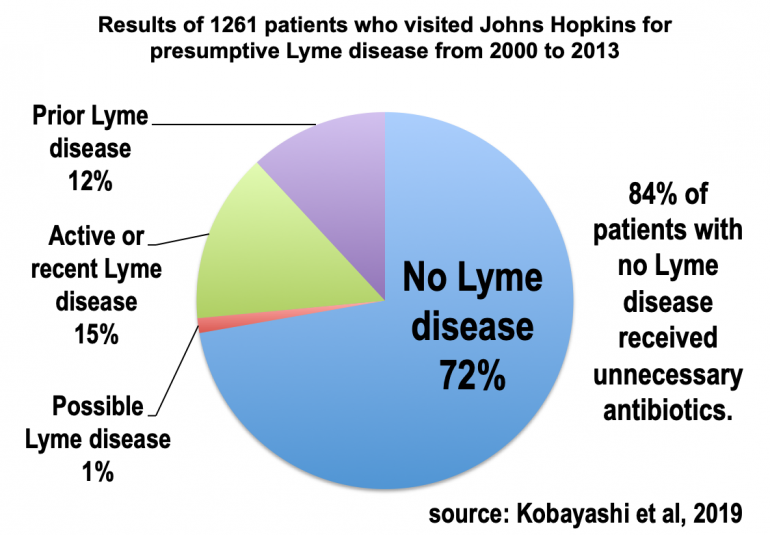LymeScience is an independent, volunteer-run patient advocacy and science education web site with a mission of sharing reliable and helpful resources about Lyme disease.
There is a great deal of false and misleading information shared online and in the media about Lyme disease. There is also an established industry of private businesses and unorthodox practitioners who profit from uncertainty and fear.
False Lyme disease diagnoses are common and are frequently accompanied by fake “coinfections“, like chronic Bartonella, chronic Babesia, and “toxic mold illness”.
When children receive inappropriate diagnoses and treatments, they become victims of Medical Child Abuse. Such abuse is rampant in chronic Lyme groups.
Children may suffer side effects from unnecessary drugs and lose their childhoods while undergoing treatment.

Despite a global scientific consensus about Lyme disease diagnosis and treatment, the science of Lyme disease is not easy to understand due to jargon, paywalls, and a fog of misinformation.
Therefore, we are attempting to present useful information in an accessible manner. Additionally, we share stories from doctors and patients, particularly on issues related to patient deception and mistreatment.
Non-profit institutional repository

Historically, many articles, scientific papers, and other documents about Lyme disease have been sadly inaccessibly to the public. In an effort to rectify this problem, LymeScience serves as a non-profit institutional document repository.
We welcome contributions to our document repository. Many publishers allow non-profit institutional repositories to include their content, if certain conditions are met. Additionally, works of the US federal government are considered in the public domain.
In some cases, LymeScience will adjust formatting and spacing for better internet display. Optical character recognition and transcription process may insert some errors, though we try to minimize them. We also post machine-assisted translations of non-English content, which may introduce differences from the original.
LymeScience does not necessarily endorse content we repost, and some content may be out of date.
Please contact us if you would like to contribute documents or other content.
Updated September 22, 2021